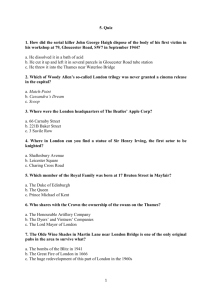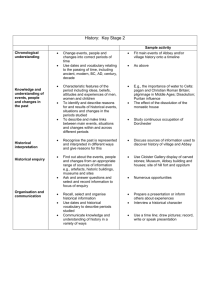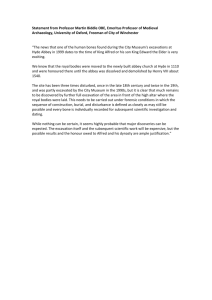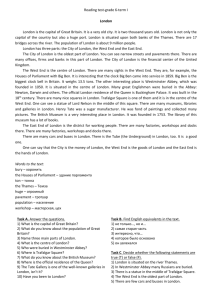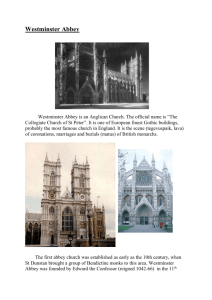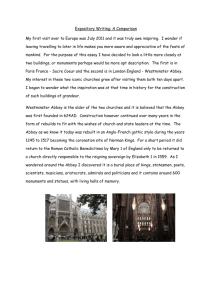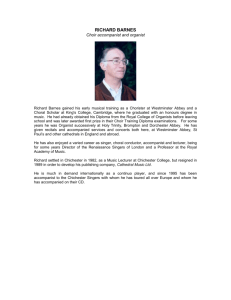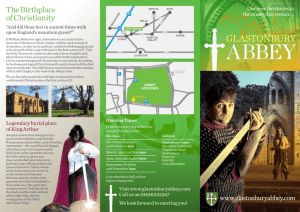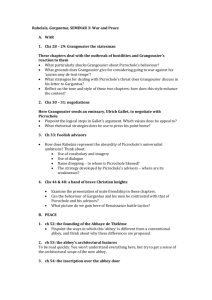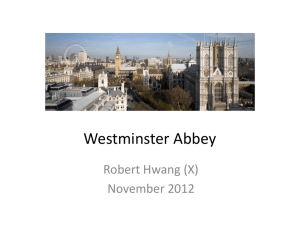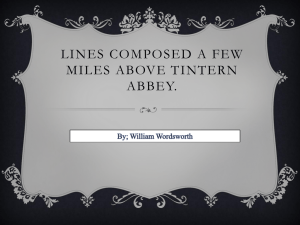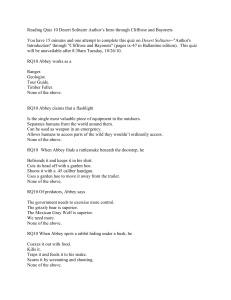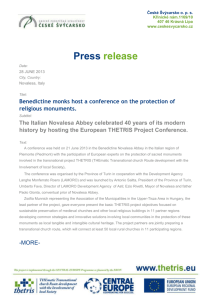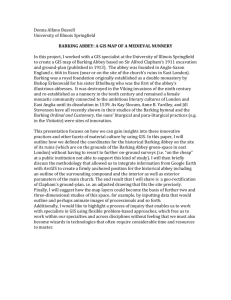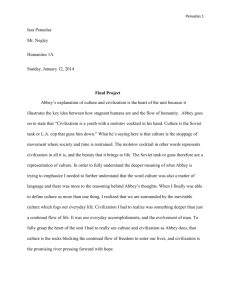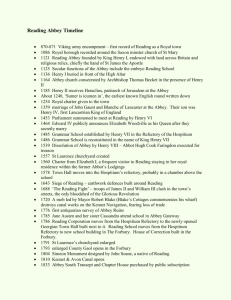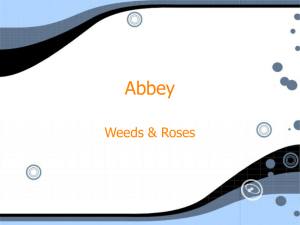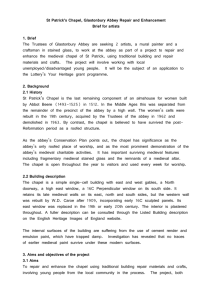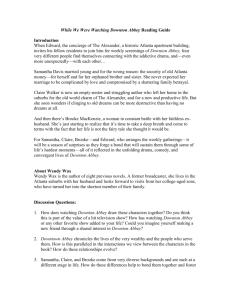Westminster Abbey
advertisement
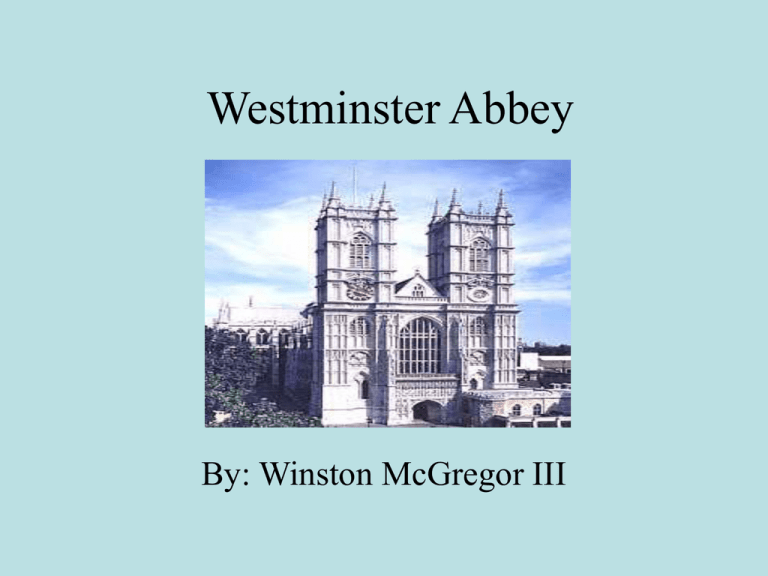
Westminster Abbey By: Winston McGregor III History • Served as a place of worship for over a thousand years. • Westminster Abbey’s official name is The Collegiate Church of St Peter. • Westminster is known among churches as a “Royal Peculiar.” This means it is under the jurisdiction of the crown and not within any diocese. History (cont.) • Important privilege to be under the jurisdiction under the crown. • This gave the Abbey full control over its finances and day to day operations. • Soon grew to be one of “the wealthiest religious houses in the country.” • Abbey was gaining more and more importance over the years in the affairs of the crown. In fact, the royal treasury was held until at least the 15th century (in the Chapel of the Pyx), guarded securely by six locks and a huge door, which still stand today. History • It has been the setting for every Coronation since 1066 (with the exception of Edward V and Edward VIII). • Among the most famous ceremonies that occurred in the Norman Abbey were the coronation of William the Conqueror on Christmas day, 1066 and the canonization of Edward the Confessor in 1161. History (cont.) • Also a burial place of kings, statesmen, warriors, scientists, musicians and poets • Over three thousand people are either buried or memorialized in Westminster Abbey. • Notable among these is the Unknown Warrior, whose grave has recently become a place of pilgrimage. Christian Martyrs Statues • • • • • • • • • • Maximilian Kolbe Manche Masemola Janani Luwum Elizabeth of Russia Martin Luther King Oscar Romero Dietrich Bonhoeffer Esther John Lucian Tapiedi Wang Zhiming How Big is the Abbey? • Floor area: 32,000 square feet • Height of West Towers: 225 feet 4 inches • Length of Henry VII chapel: l03 feet 9 inches • Height of Henry VII chapel: 60 feet 7 inches • Width of whole chapel: 70 feet l inch • Seating capacity at normal Services: about 2,000 Religious Relics Still in the Abbey • The bones of St Edward the Confessor still lie in his Shrine behind the High Altar but the relics of other saints and religious artifacts disappeared at the dissolution of the monastery in l540. Who Can Be Buried There Now? • Dr. Wesley Carr (Dean of Westminster) must give his permission for all burials and monuments in the Church. • People who have served the Abbey in an official capacity can also be buried here. Interesting Fact • From 1245, when his work on the abbey started, until his death in 1272, Henry III spent over £40.000 on the rebuilding of the Abbey (equivalent to that of the state's annual income for two full years during his reign!!). Resources and Additional Links • http://www.westminster-abbey.org/ • http://www.castlesabbeys.co.uk/Westminster-Abbey.html


